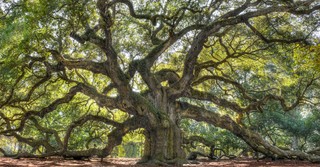- Recent Translations
- All Translations
Isaiah 61:3
Share
Settings
Isaiah 61:3 Meaning and Commentary
To appoint unto them that mourn in Zion
Or, "to the mourners of Zion" F21; such who are of Zion, belong to the church of God, and mourn for the corruptions in Zion's doctrines; for the perversion, abuse, and neglect of Zion's ordinances; for the disorders and divisions in Zion; for the declensions there, as to the exercise of grace, and the power of godliness; for the few instances of conversions there, or few additions to it; for the carelessness, ease, and lukewarmness of many professors in Zion; and for their unbecoming lives and conversations. Now one part of Christ's work is to "appoint" comfort to such; he has appointed it in counsel and covenant from eternity; made provision for it in the blessings and promises of his grace; he has "set" F23 or put it in the ministry of the word; be has ordered his ministering servants to speak comfortably to his people; yea, by his Spirit he "puts" comfort into the hearts of them, who through their unbelief refuse to be comforted; and he has fixed a time when he will arise and have mercy on Zion, and bring her into a better state than she is now in, when there will be none of these causes of complaint and mourning: to give unto them beauty for ashes;
in the Hebrew text there is a beautiful play on words, which cannot be so well expressed in our language, "to give peer for epher" F24; in times of mourning, it was usual to put on sackcloth and ashes, ( Esther 4:1 Esther 4:3 ) ( Job 2:8 Job 2:10 ) ( John 3:5 John 3:6 ) , instead of this, Christ gives his mourners the beautiful garments of salvation, and the robe of his righteousness, and the graces of his Spirit, and his gracious presence, together with his word and ordinances, and sometimes a large number of converts; all which, as they are ornamental to his people, they yield them joy, peace, and comfort: and this is a beauty that is not natural to them, but is of grace; not acquired, but given; not fictitious, but real; is perfect and complete, lasting and durable, and desired by Christ himself, who gives it: the oil of joy for mourning;
oil used to be poured on the heads of persons at entertainments and festivals, and at times of rejoicing; and so is opposed to the state of mourners, who might not be anointed, as the Jewish commentators observe; see ( Psalms 23:5 ) ( Ecclesiastes 9:7 ) ( Matthew 6:17 ) the grace of the Spirit without measure, with which Christ was anointed, is called "the oil of gladness", ( Psalms 45:7 ) and of the same nature, though not of the same measure, is the grace which saints have from Christ; the effect of which is joy and gladness, even joy unspeakable, and full of glory; which is had in believing in Christ, and through a hope of eternal life by him; hence we read of the joy of faith, and of the rejoicing of hope: this oil is Christ's gift, and not to be bought with money; this holy unction comes from him; this golden oil is conveyed from him, through the golden pipes of the word and ordinances; is very valuable, of great price, and to be desired; and, being had, cannot be lost; it is the anointing that abides: the garment of praise for the spirit of heaviness;
such as is in persons under afflictions, or under a sense of sin, a load of guilt, and expectation of wrath; such as have heavy hearts, contrite and contracted F25 ones, as the word is observed to signify; for as joy enlarges the heart, sorrow contracts it; instead of which, a garment of praise, or an honourable one, is given; alluding to persons putting on of raiment suitable to their characters and circumstances, at seasons of rejoicing, such as weddings, and the like, ( Ecclesiastes 9:7 Ecclesiastes 9:8 ) ( Matthew 22:11 Matthew 22:12 ) by which may be meant here the robe of Christ's righteousness later mentioned, ( Isaiah 61:10 ) so called because worthy of praise, for the preferableness of it to all others, being the best robe; for its perfection and purity; for the fragrancy and acceptableness of it to God, and for its eternal duration; also, because it occasions and excites praise in such on whom it is put; and such likewise shall have praise of God hereafter, when on account of it they shall be received into his kingdom and glory: that they might be called trees of righteousness;
that is, that the mourners in Zion, having all these things done for them, and bestowed on them, might be called, or be, or appear to be, like "trees" that are well planted; whose root is in Christ, whose sap is the Spirit and his grace, and whose fruit are good works; and that they might appear to be good trees, and of a good growth and stature, and be laden with the fruits of righteousness, and be truly righteous persons, made so by the imputation of Christ's righteousness to them: "the planting of the Lord"; planted by him in Christ, and in his church, and so never to be rooted out: that he might be glorified;
by their fruitfulness and good works, ( John 15:8 ) ( Matthew 5:16 ) or that he might glorify himself, or get himself glory by them; (See Gill on Isaiah 60:21).
F21 (Nwyu ylbal) "lugentibus Sionis", Junius & Tremellius, Piscator Vitrtnga. So Syr.
F23 (Mwvl) "ad ponendum" Montanus; "ut ponerem" Munster Pagninus.
F24 (rpa txt rap) the Targum and Vulgate Latin version render it a "crown for ashes" and the word is used for the tire of the head in ( Ezekiel 24:17 ) . The Syriac and Arabic versions read, "for ashes sweet ointment", or "oil of gladness", joining it to the next clause; and mention being made of oil or ointment there, Fortunatus Scacchus thinks the allusion is to crowns of roses and, lilies moistened with, ointment of myrrh, and like ointment, which used to be wore at nuptial solemnities; and so opposed to ashes put on the head in times of mourning, which falling from thence, and moistened with tears on the cheeks, were clotted there, and so expressed the miserable condition they were in; but these things the reverse. See his Sacror. Eleaoehr. Myrothec. I. 1. c. 28. col. 139.
F25 (hhk xwr txt) "pro spiritu stricto", Montanus, Paganinus; "loco spiritus contracti", Junius & Tremellius, Piscator; "constricto", Vatablus.






